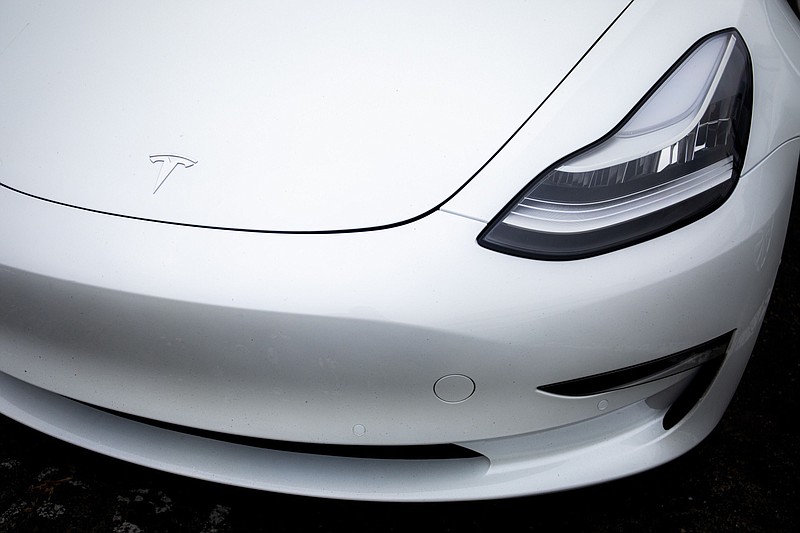Tesla's months-long rally took a pause Friday as the stock retreated after seven sessions of gains when the electric-vehicle maker's shareholders approved a three-for-one stock split on Thursday.
The split -- aimed at attracting an even larger number of retail investors, who have been piling into the stock -- will bring Tesla's shares down to the $300 range. The Austin, Texas-based company did not immediately specify when it will take effect. Tesla first announced its plan on March 28 via a tweet.
Meanwhile, in other Twitter business, Musk alleged in newly unsealed court filings that the social media giant defrauded the billionaire and Tesla CEO. The accusations remain part of his bid to exit a $44 billion agreement to purchase Twitter.
As for Tesla, the four-month lag between announcement and vote has proven to be beneficial, as a recovery in growth stocks has carried the Nasdaq 100 Index up 18% from a June low. Tesla is outperforming both the tech-heavy gauge and the broad S&P 500 Index with a gain of over 43% from a late-May low.
Tesla shares fell 6.63% on Friday to closed at $864.51. The stock has been on an upswing over the past month, rising 37% since the end of June as of Thursday's close.
"Tesla's stock split timing looks impeccable," Roth Capital Partners analyst Craig Irwin said, noting the shareholder vote is coming at a time when the "market seems to be heading in the right direction."
Tesla's recent rebound -- it posted a 32% gain in July for its best month since October -- comes on the back of resilient second-quarter results and a bit of a lift from the climate change bill from the Biden administration, which aims to boost the use of clean energy through a series of tax incentives.
Some of the latest momentum also comes from its faithful band of retail investors, with their purchases of the stock "skyrocketing" ahead of the stock-split vote, according to Vanda Research data.
Still, most of the risks that weighed on the company earlier this year continue to linger, with supply-chain disruptions far from sorted, tensions between the U.S. and China rising, and Musk involved in the potentially lengthy and costly legal dispute with Twitter. Moreover, recent high profile stock splits have failed to give a meaningful boost to other giants including Alphabet Inc. and Amazon.com this year.
For Tesla, this will be the second share-split in less than two years. The company had a five-for-one stock split in 2020, prompting a 60% surge in the share price from the day of the announcement to the execution date. The company already has a fairly strong retail investor following, often making it the stock with the most buy orders on Fidelity's retail trading platform.
Even though stock splits do not impact the business model of a company, they bring in a sense of affordability by lowering the price of the shares, especially for mom-and-pop investors, market watchers say.
"Owning the whole share can be less complicated and more empowering, and these companies know that," said Callie Cox, eToro U.S. investment analyst. "There's clearly an underlying desire in this market for any company to make its stock as accessible as possible. And so far, investors have responded to that."
TWITTER EXIT
In newly unsealed court filings, Musk accused Twitter of holding back necessary information that misled his team about its true user base. Moreover, his countersuit alleges that Twitter committed fraud, breach of contract and violation of the Texas Securities Act.
Musk's counterclaims were filed confidentially last week and unsealed in a filing late Thursday at the Delaware Chancery Court. He had offered to buy Twitter earlier this year, then tried to back out of the deal by claiming the social platform was infested with a larger numbers of "spam bots" and fake accounts than Twitter had disclosed.
Twitter quickly sued to force Musk to complete the acquisition, but Musk responded only by filing the countersuit. His attorneys argued that Twitter "misrepresentations or omissions" distorted Twitter's value and caused Musk to agree to buy it at an inflated price. They said Twitter's own disclosures revealed that it has 65 million fewer "monetizable daily active users," who can be shown digital ads, than the 238 million that Twitter claims.
The filing also said most of Twitter's ads are shown only to a sliver of the company's user base. In an unexpected twist, Twitter filed its response denying Musk's accusations before Musk's own counterclaims surfaced. Twitter called Musk's reasoning "a story, imagined in an effort to escape a merger agreement that Musk no longer found attractive." The case is scheduled to go to trial on Oct. 17.
Information for this article was contributed by The Associated Press.

